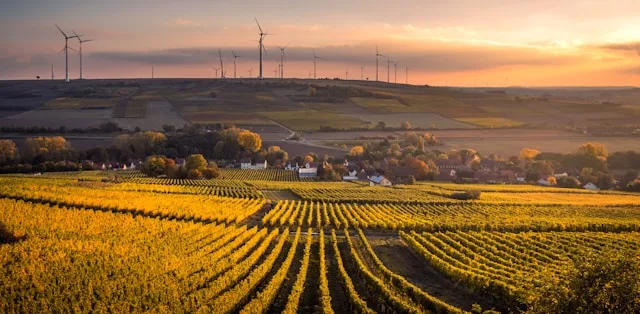Agriserv issues nearly 10,000 Saudi Arabia agricultural licences in Q3 2024 to promote sustainable growth, focusing on fish resources and plant production
Saudi Arabia’s agricultural sector is witnessing substantial growth, with 9,683 agricultural licences issued in the third quarter of 2024 to enhance food security and boost local production. These Saudi Arabia agricultural licences, granted by the state-owned National Co. for Agricultural Services (AgriServ), reflect the Kingdom’s commitment to strengthening its agricultural sector despite challenging environmental conditions.
From July to the end of September, AgriServ, which plays a crucial role in empowering farmers, breeders, and commercial enterprises, issued the licences as part of the Kingdom’s strategic agricultural plan. The company, established in 2018, focuses on sustainable development, productivity improvements, and operational efficiency, ensuring the agricultural sector’s long-term success.
AgriServ CEO, Omar Al-Suhaibani, underlined the importance of these licences in helping achieve the Kingdom’s broader objectives of food security, sustainability, and economic contribution. “The issuance of these licences is not just about boosting production, but also ensuring that Saudi Arabia’s agricultural practices remain sustainable and responsible, with a clear focus on resource management,” he said.
Embed from Getty ImagesSaudi Arabia, despite its desert climate and limited water resources, has prioritised policies that address critical concerns such as food and water security, sustainable agriculture, and ecological balance. The Kingdom’s strategic plan for its agricultural sector revolves around five key pillars: sustainability of natural resources, food security, social welfare for farmers, economic contributions, and preventive measures for environmental and resource conservation.
Of the licences issued in Q3, the fish resource category received the highest share, with a total of 5,969 licences granted. This includes seasonal fishing permits, of which 1,227 were temporary, aimed at supporting local fishermen and encouraging responsible fishing practices. In addition to fish resources, 2,476 licences were issued for plant production, with beekeeping leading this sector, receiving 1,486 licences, demonstrating a strong interest in honey production and pollination services.
Other agricultural categories also saw significant activity. The veterinary sector issued 677 permits, contributing to animal health and welfare. Public benefit markets, which play a vital role in distributing agricultural products to consumers, received 286 permits, while the animal resources category saw 275 licences granted, with broiler chicken production leading the way, accounting for 184 licences. Marketing services, essential for linking producers with markets, also gained momentum with 152 permits for public benefit providers.
These developments come as Saudi Arabia continues to focus on diversifying its economy and ensuring food security through local production. Agriculture is a crucial element of Vision 2030, the Kingdom’s ambitious transformation programme, which seeks to reduce the country’s reliance on imports and support domestic industries.
In recent years, AgriServ has emerged as a key player in this transformation, offering high-quality agricultural services that not only boost productivity but also ensure that agricultural practices are sustainable. The company, created as part of the Saudi government’s transformation initiative, operates under the Ministry of Environment, Water, and Agriculture (MEWA), with the ministry overseeing regulatory and legislative responsibilities while AgriServ focuses on delivering services on sustainable commercial grounds.
The company has been instrumental in driving technological advancements in agriculture, offering support to various stakeholders across the sector. By helping farmers adopt new technologies and improve practices, AgriServ is playing a crucial role in modernising agriculture in the Kingdom, a sector traditionally reliant on outdated methods and challenged by limited natural resources.
Saudi Arabia’s commitment to sustainable agriculture is reflected in the wide range of licences issued. The fish resource licences, for instance, support both seasonal fishermen and commercial enterprises, ensuring that the country’s marine resources are managed sustainably. Meanwhile, the plant resource sector, driven by beekeeping and other forms of agriculture, continues to grow despite the harsh climate, highlighting the Kingdom’s adaptability and focus on innovation.
Moreover, the issuance of veterinary permits demonstrates the country’s commitment to animal welfare, ensuring that livestock and poultry sectors meet high standards of care and health. This emphasis on animal resources is also evident in the broiler chicken sector, where the Kingdom aims to improve domestic poultry production to meet rising consumer demand while reducing reliance on imports.
As the world faces growing concerns over food security and environmental sustainability, Saudi Arabia’s efforts to improve its agricultural sector are drawing attention. By issuing nearly 10,000 licences in just three months, the Kingdom is not only boosting local production but also ensuring that its agricultural practices align with global sustainability standards.
AgriServ’s role in this process is essential. By focusing on delivering sustainable and efficient services, the company is helping Saudi Arabia achieve its agricultural goals. From supporting small-scale beekeepers to granting licences for large commercial enterprises, AgriServ is shaping the future of Saudi agriculture, ensuring it thrives in the years to come.
